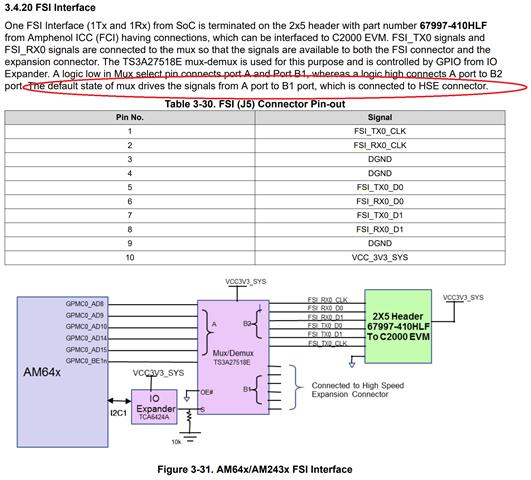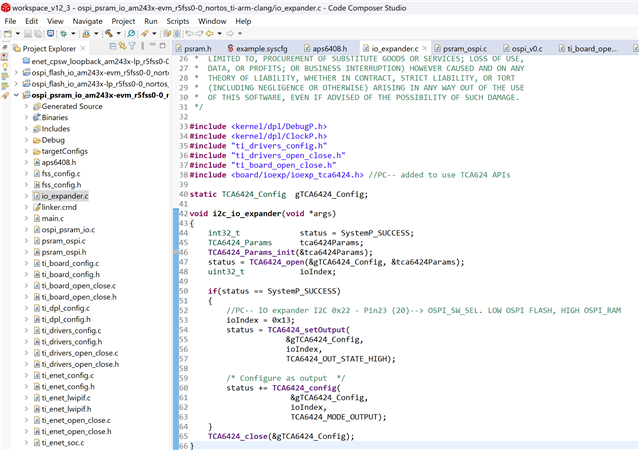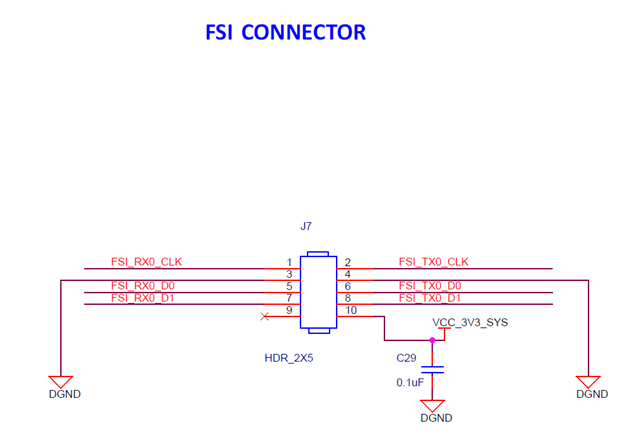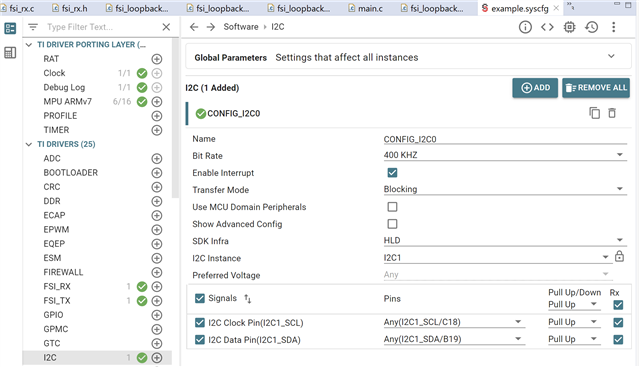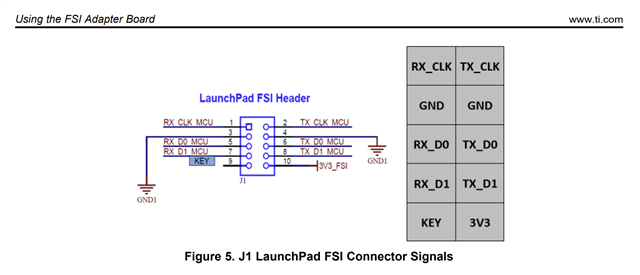Other Parts Discussed in Thread: TCA6424
Tool/software:
Hi
Im trying to make two drives to communicate with no success.
I used the loopback examples as refference and made one drive to try and send data and the othe drive to recive.
I tried to do so withe both with interrupts and polling way, it looks like i am able to send the data but in no way i got indication to reciving data.
Your guidance will be much appreciated.


